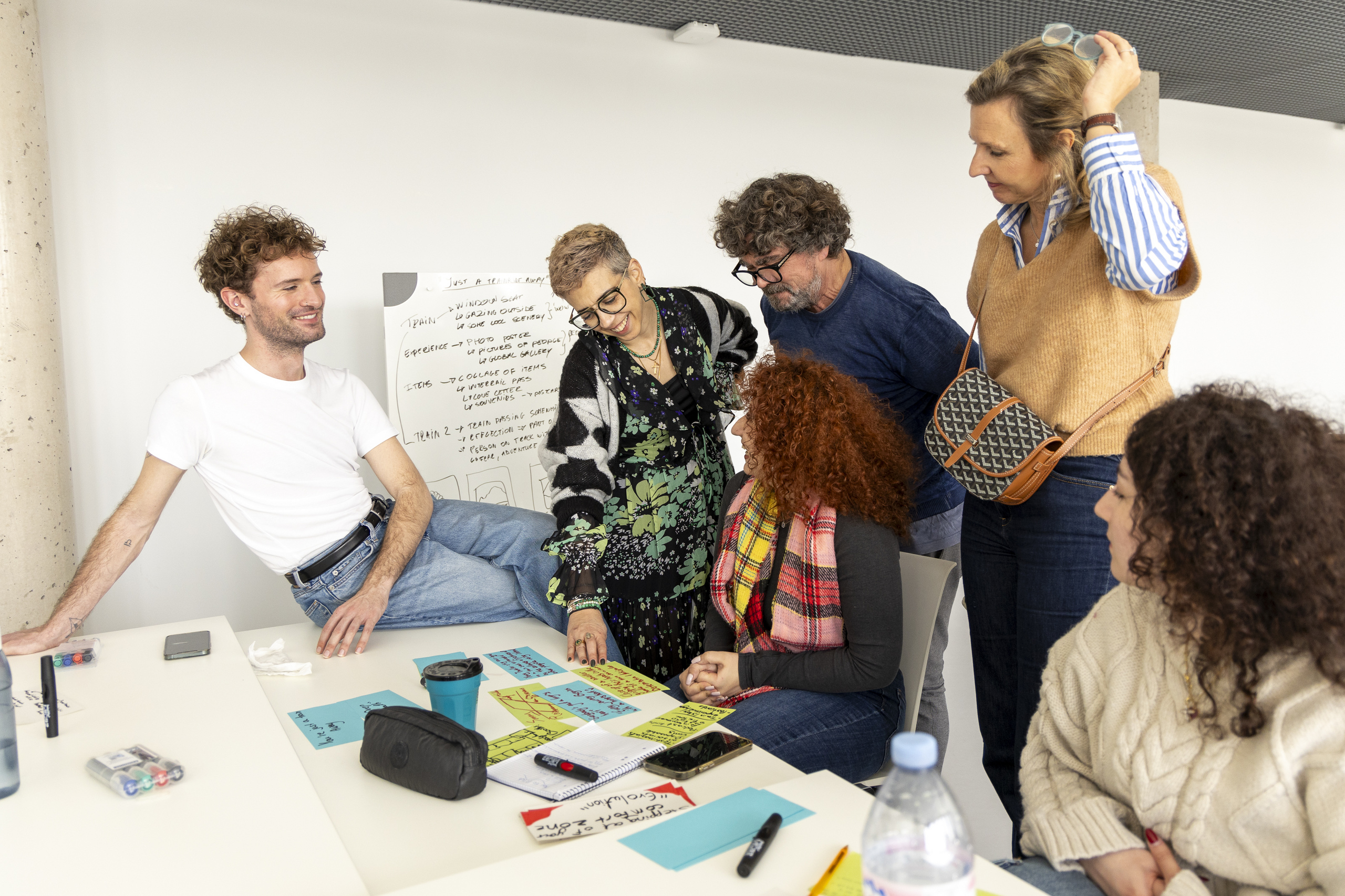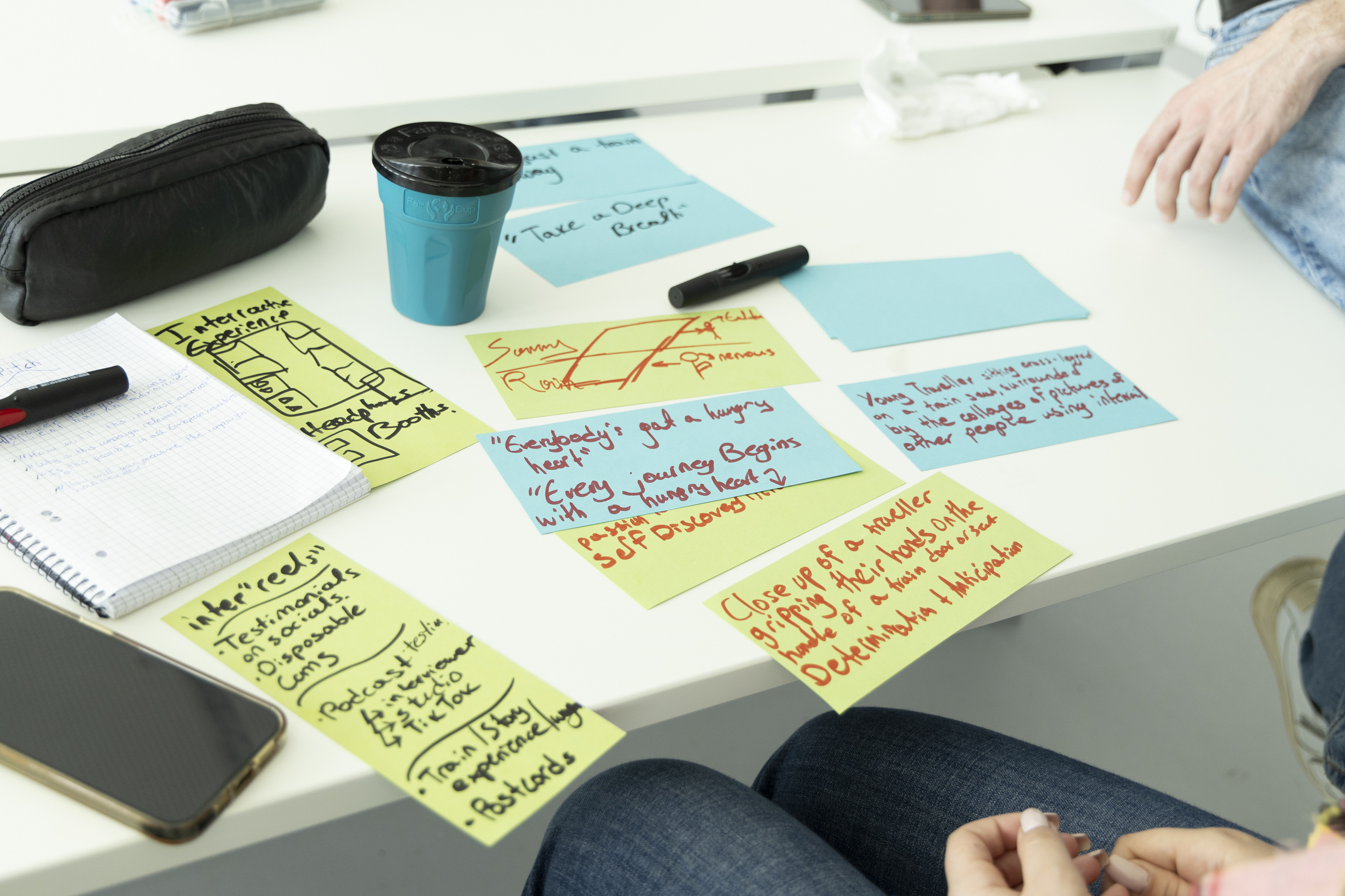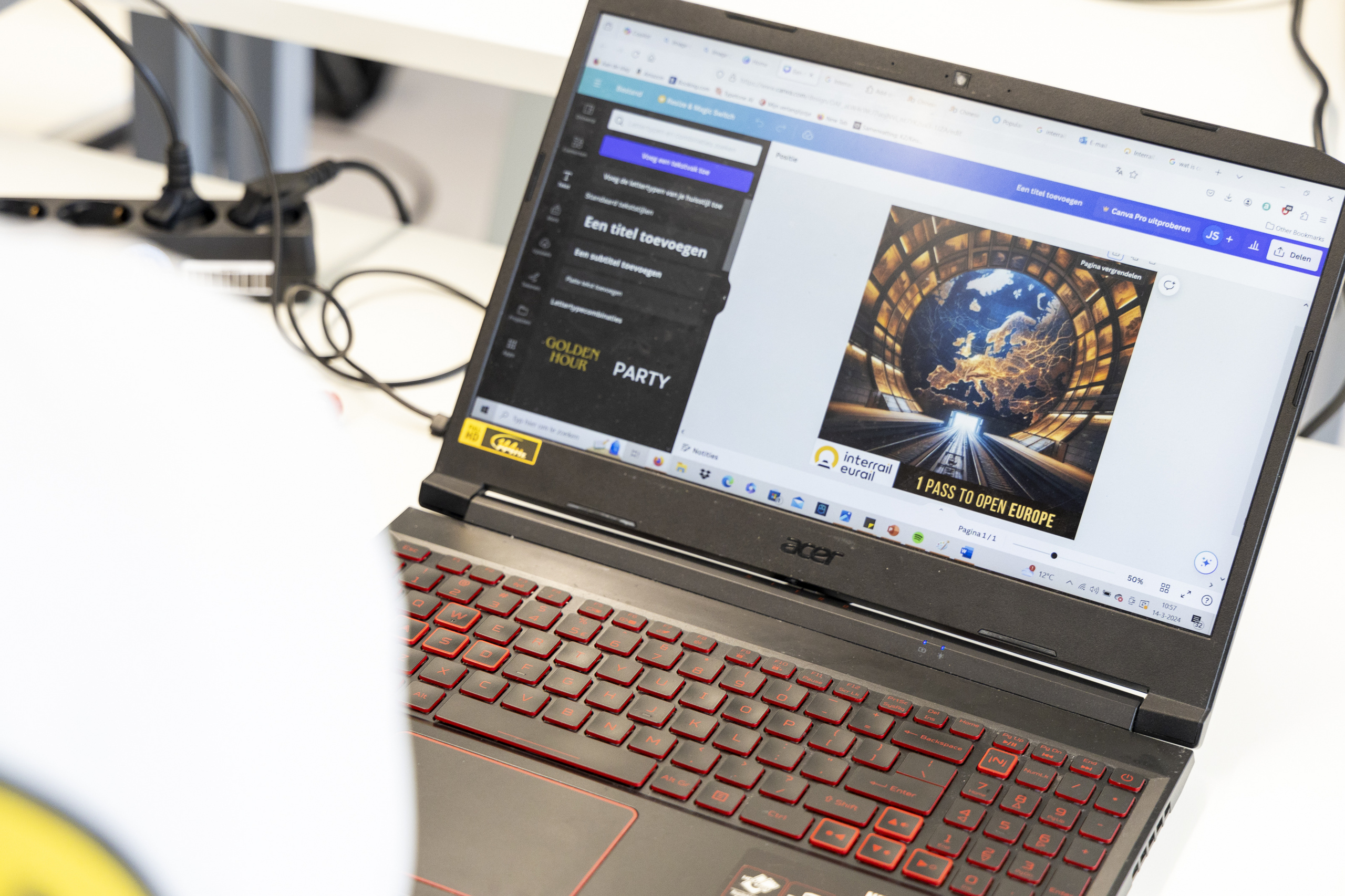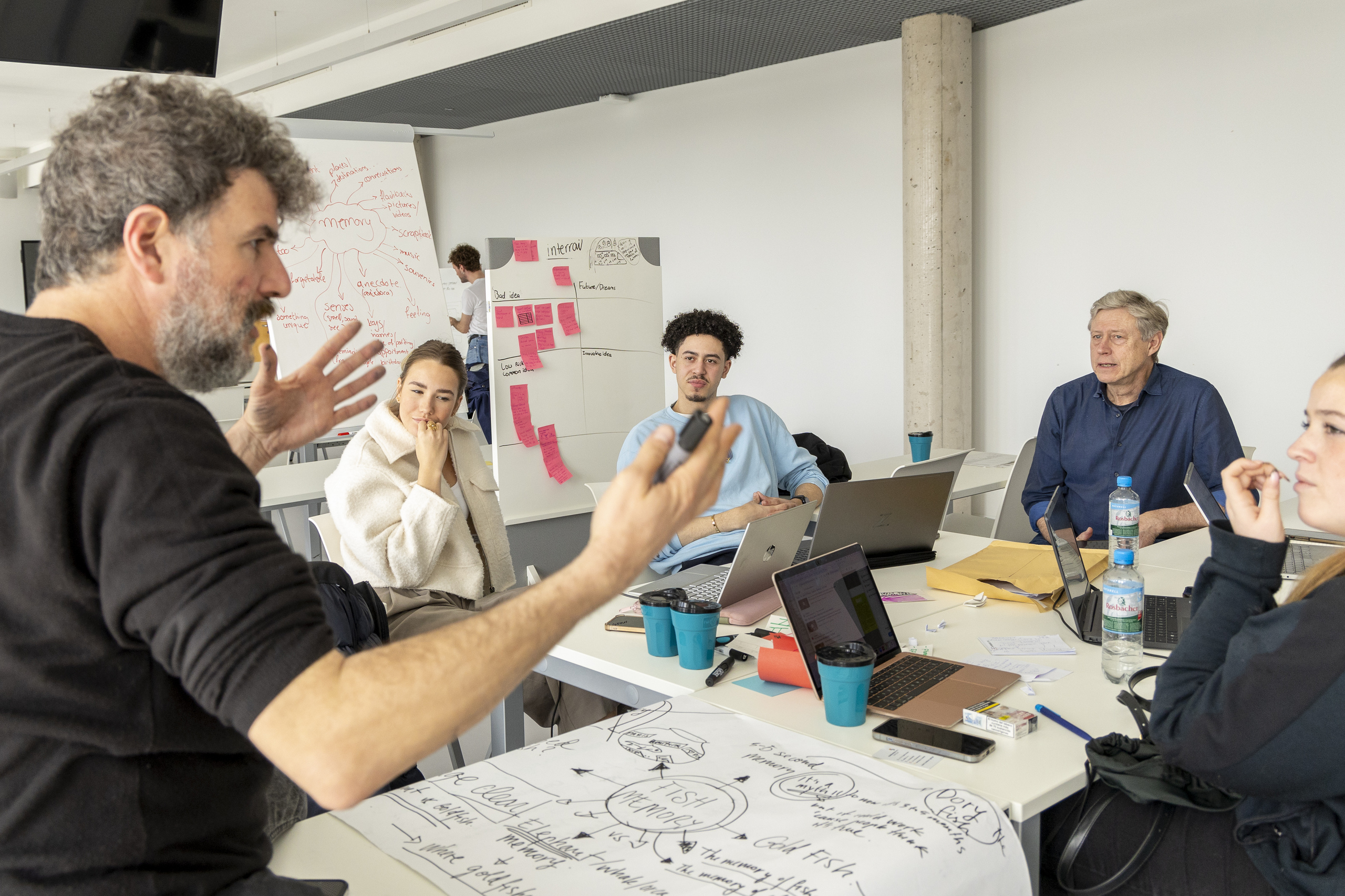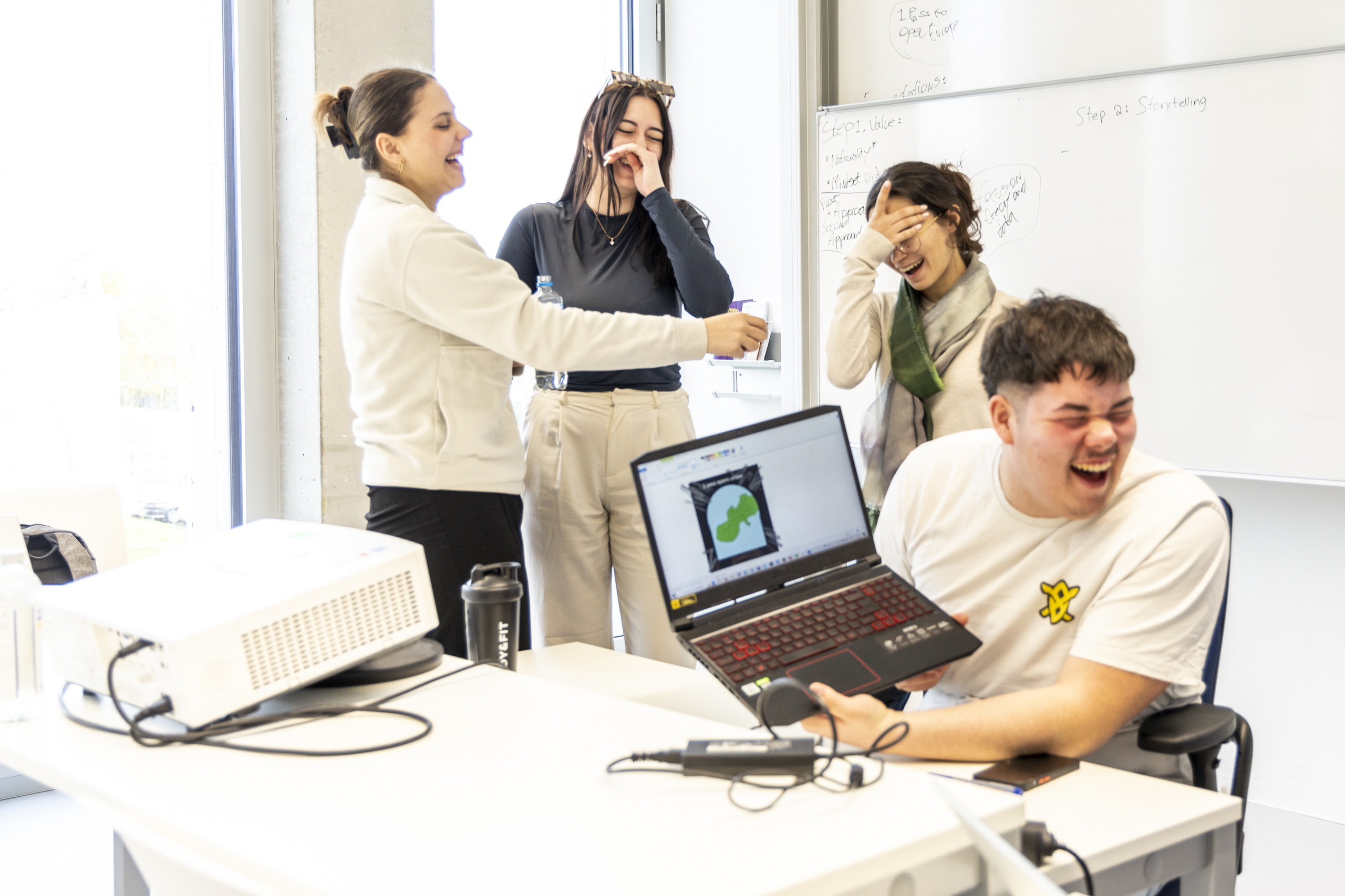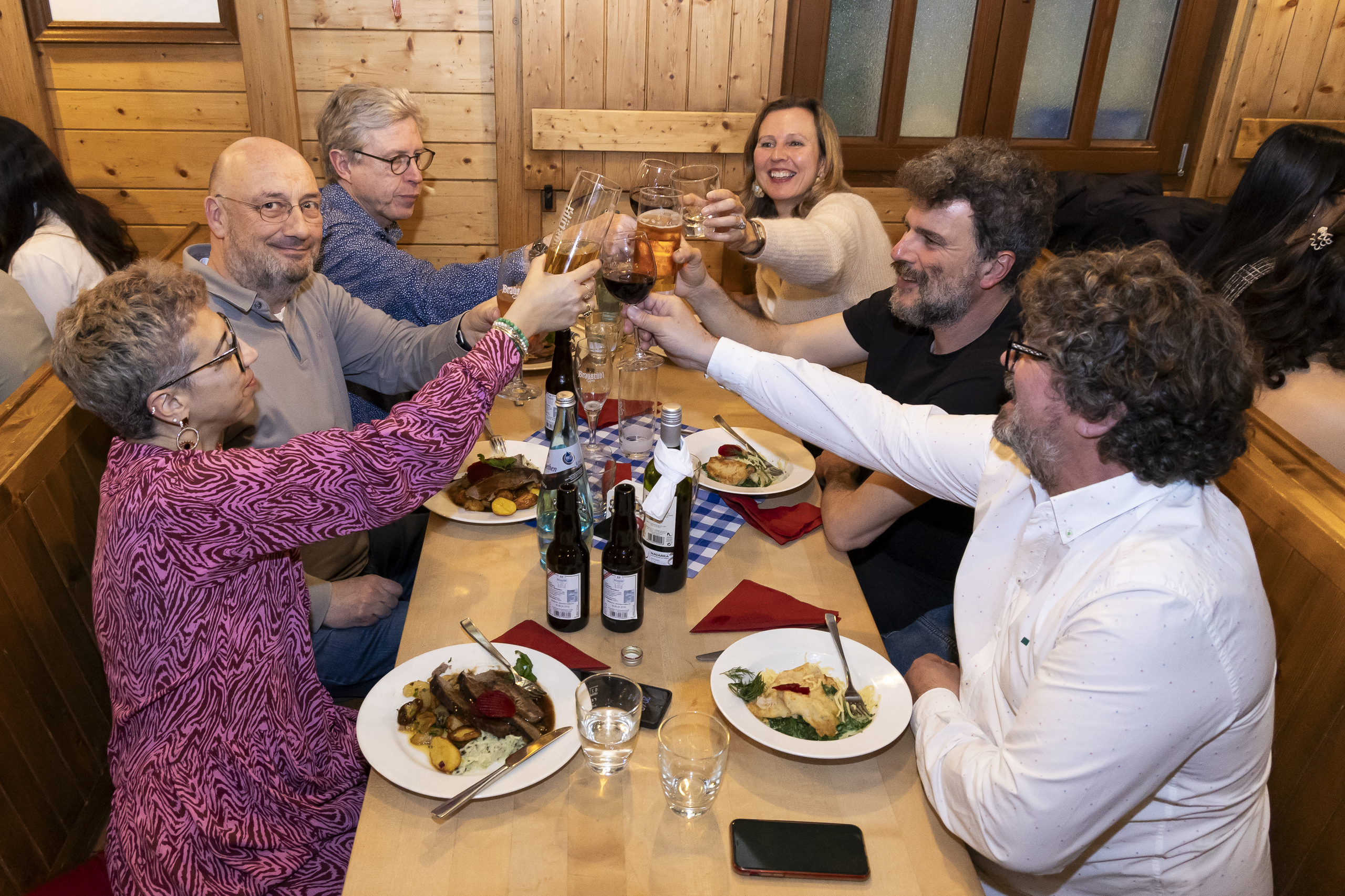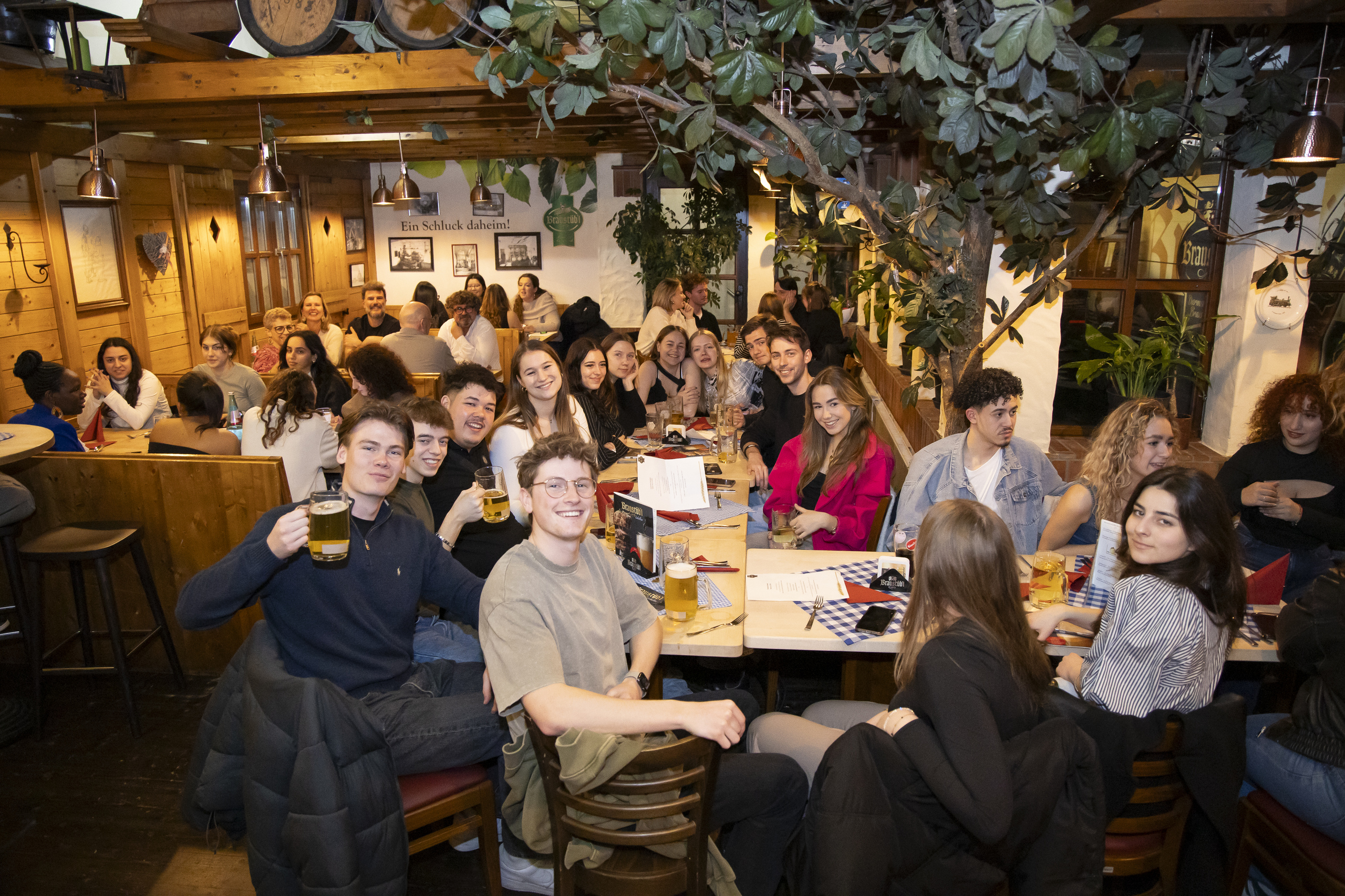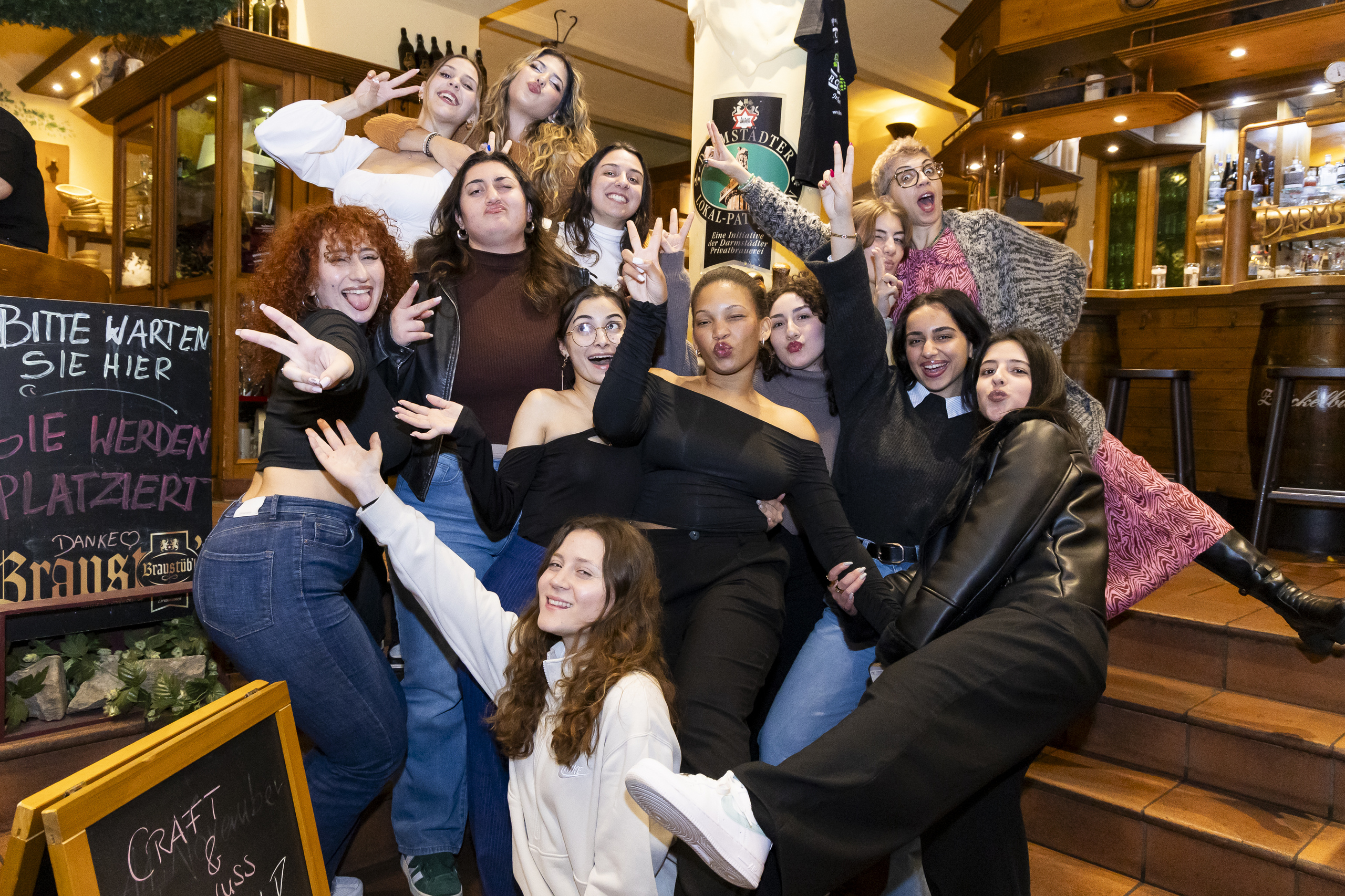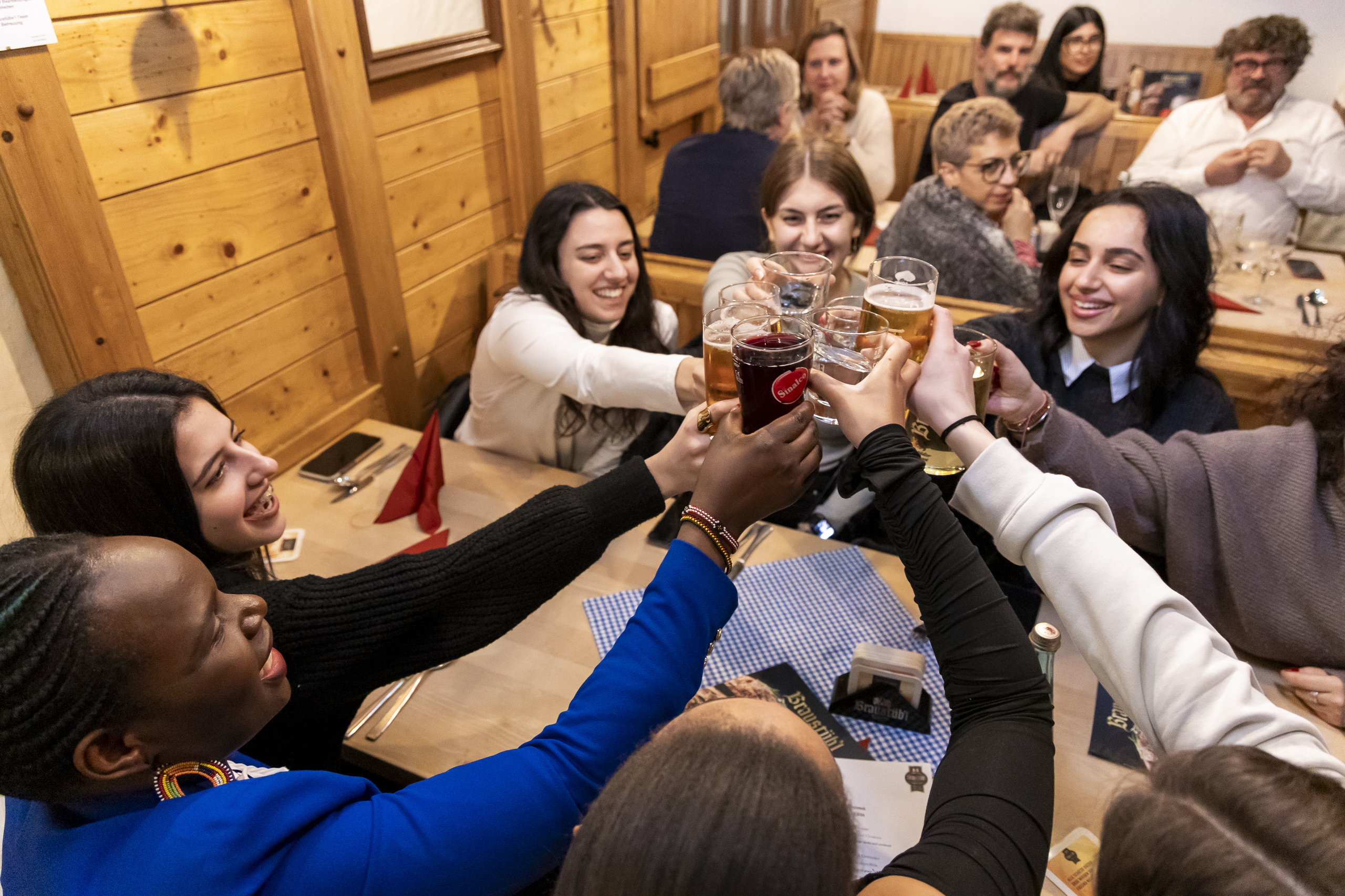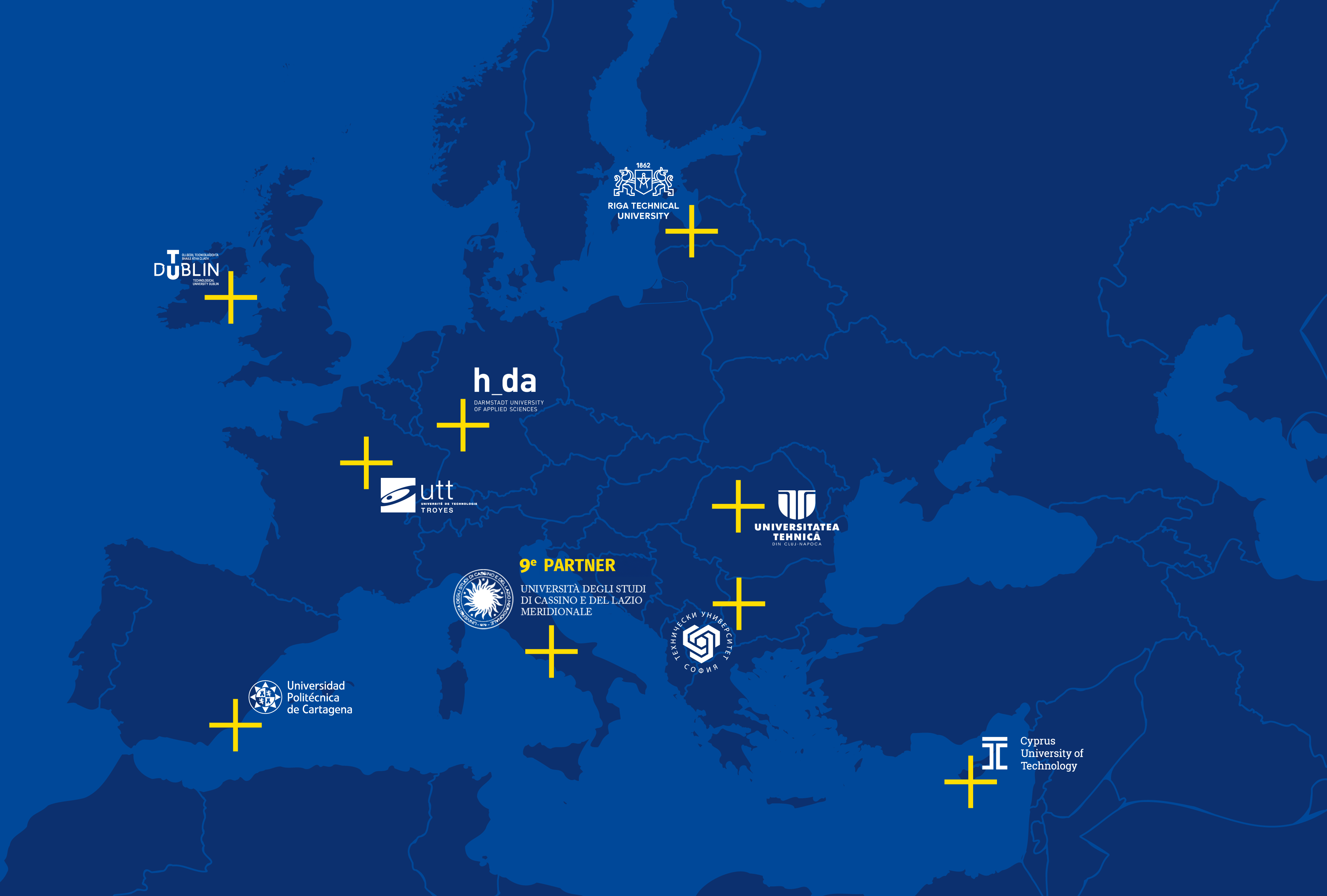Fancy a rail adventure across Europe? Come on board!

In a “Blended Intensive Programme” (BIP) at Darmstadt University of Applied Sciences, 40 students from six European partner universities spent a week developing a marketing campaign for Interrail, the European rail pass. Part of their creative collaboration in this practice-oriented project, in which the EUT+ University Alliance took part with students from Cyprus and Latvia, was about crossing frontiers. The results were convincing: at the end of the programme, many of the budding advertising gurus could imagine travelling by Interrail themselves.
By Alexandra Welsch, 18.3.2024
It’s slightly reminiscent of James Bond: a futuristic image of a rail track leading out of a tunnel, behind which a European universe unfolds. The message – “One Pass to Open Europe” – aims to promote the pan-European Interrail pass in words and pictures. As is generally known, even 007, the superhero among secret agents, sometimes takes the train. But the students here still have a lot of questions to answer first. They are currently busy with “Storytelling”. They have written the word in big letters on the whiteboard as an anchor point for their central narrative. “That’s our Dutch sense of humour,” says Jayden Stook about their tunnel picture. “In my country, there is the saying ‘the light at the end of the tunnel’.” At first, however, his counterpart from Cyprus has no idea what he’s talking about. “We don’t say that,” says Antria Varella. Another frontier crossed.
The group is one of eight student teams who developed a pan-European communication campaign for the Interrail pass as part of the final week of the “Erasmus Blended Intensive Programme” (BIP) on the theme “European Teams in Advertising” at Darmstadt University of Applied Sciences (h_da). A good 40 young people from six countries took part in the project, supported by the EU and the International Office. Almost half the guests came from two partner universities in the European University Alliance EUT+: Cyprus University of Technology and Riga Technical University in Latvia. Students and teaching staff from the following h_da partner universities also attended: CEU Cardenal Herrera University in Spain, Inholland University of Applied Sciences in Alkmaar and AP University of Applied Sciences and Arts in Antwerp. The programme was therefore also a further step towards filling the vision of merging into a European university with life.
“It’s a great thing, but few people know about it”
It was Ralf Schellhase, Professor of Marketing at Darmstadt Business School, who set the project in motion. He has organised many similar programmes with European partners in the past: “One was about paella in Spain, another about olive oil in Turkey,” he explains in one of the course rooms in h_da’s Studierendenhaus, while the Dutch-Cypriot team continues discussing tunnel narratives at the whiteboard at the front. Schellhase came up with the current topic not only because he is an Interrail fan himself. “It’s a great thing, but few young people nowadays know about it,” he says. “Although that’s precisely the target group it aims to attract.”
Before meeting up for the week in Darmstadt, the participants had to complete sub-projects for the programme at their home universities on the scale of a compulsory elective module, with 180 hours of work over six weeks. As part of a market survey, they compiled a list of questions on vacation behaviour, such as choice of destinations or means of transport. In addition, they conducted personal interviews with open questions, also on respondees’ familiarity with Interrail. They then documented their results in a research report and a PowerPoint presentation, which they showed to the whole group at two online events. A social media manager from Interrail, who made an important contribution to the course by providing input on the company, attended as a guest.
An elephant as a source of inspiration
You can almost see the steam coming out of the students’ ears as they work during the creative phase on the advertising slogan and media strategy for their marketing campaigns in one of the larger course rooms in h_da’s Studierendenhaus, where three groups are brainstorming alongside each other. A team of five students has written “Memory” on a flipchart as their central theme. As a source of inspiration, Dutch lecturer Marten Coerts shows them a classic advertising clip for Rolo toffees with an elephant – and the reminder that it never forgets. “As its theme, the advert plays with the idea that an elephant is said to have a good memory,” says Coerts. The students should now tweak this a bit and apply it to a fish. “That will open up a whole new world for you,” he says, but nevertheless sees questioning faces. Confused? “A little,” admits Spanish student Maria De Vargas Cuñat. But the next moment, the five of them throw themselves back into their brainstorming session, focusing now on the fish and the question of what its little brain might remember forever. Spoiler: “Don’t make it too complicated,” recommends Coerts.
Shortly afterwards, the group at the other end of the room also learns that simple slogans are often the best. Belgian student Branislaw Simovic has written “Just a train ride away” at the top of the whiteboard. And is talking now about the idea of a climbing wall in train stations as an advertising medium. “What has it got to do with Interrail?” asks marketing professor Yioula Melantiou from Cyprus University of Technology. “Both are a challenge,” replies Simovic. “And can take you up a mountain.” The professor advises choosing a message that is easy to understand, but also recommends: “Don’t throw too many of your ideas overboard, some of them are good.”
“There is very close interaction here among the students”
That the students receive such concentrated input from several teachers with different backgrounds and perspectives is one of the riches of the BIP programme and the close exchange within EUT+. “It’s a much more intensive experience,” thinks lecturer Pepe Martinez from Spain, also in comparison to longer Erasmus exchange programmes over several months. “There is very close interaction here among the students within just a week.” Crossing frontiers and understanding each other is important, says Modris Ozolins from Riga and adds: “Under the EUT+ umbrella, we share similar concerns and solutions.” They hope that the collaboration between nine universities throughout the whole of Europe in the EUT+ alliance will attract more international students and stimulate mobility among students and staff. Marketing professor and exchange organiser Schellhase is counting on similar positive effects for the Darmstadt side. “We needed new partner universities,” he says. Through the growing European university alliance, new contacts with Cyprus and Latvia have now been established.
Above all, however, these shorter BIP programmes benefit the students. “Many are more confident about going abroad for just a week than for six months.” For quite a few, it is the first time they have travelled abroad like this. “It’s an enormous challenge,” says Schellhase. Although travel and accommodation costs are subsidised via lump sums from the EU, there are cultural and language barriers to overcome. For many, even just speaking English most of the time is difficult. “They have to grit their teeth.” And get along with people from other cultures with different ideas who they didn’t pick themselves. “But at the end of the programme, some already said: That was the best week of my life.”
In the pub on the final evening: “A great experience, you learn a lot.”
Potato soup, cheese spaetzle, braised beef or fillet of redfish – the choice on the menu in “Braustüb’l”, a traditional pub, on the final evening is typically German. Beer mugs are raised again and again: “Cheers!” The energy accumulated over a week of concerted input and output is released in such loud chatter that it makes your ears ring. And if you ask any of the students about their individual experiences of the BIP programme, they are very enthusiastic. Like Brendah Odhiambo, for example, who is studying International Business Administration at h_da: “You learn a lot,” she says, praising the advantages: cultural exchange, overcoming language barriers, getting along with each other and working together, new tools and methods. “It’s a great experience.”
That is exactly what Santa Abele, a Latvian student from Riga, says too. “You gain new experiences, contacts, friends, explore ideas and knowledge, can further develop your English language skills and grow personally,” she says. “It has also increased my interest in science and proved to be a source of guidance for my future career.” And there is something else she is taking away from her first experience within EUT+: the desire to go on an Interrail trip around Europe. When asked about this at the end of the programme, around half the participants expressed the same desire. Santa grins: “At least in our case, the campaign has already been successful!”
Contact
Christina Janssen
Science Editor
University Communication
Tel.: +49.6151.533-60112
Email: christina.janssen@h-da.de
Translation: Sharon Oranski
Would you like to organise a BIP yourself?
The International Office of the h_da supports you with the planning and realisation.
Contact person:
Katharina Niederhacke
+49.6151.533-60661
erasmus-bip@h-da.de
international.h-da.de/
